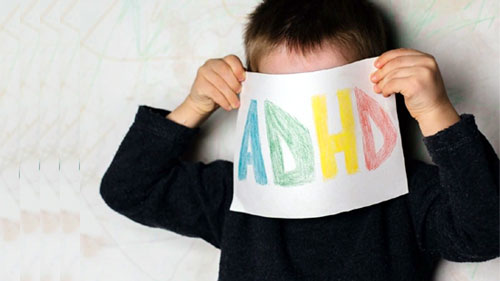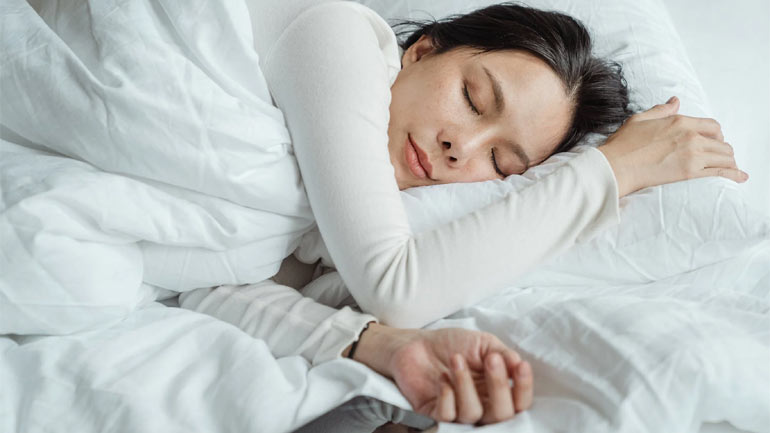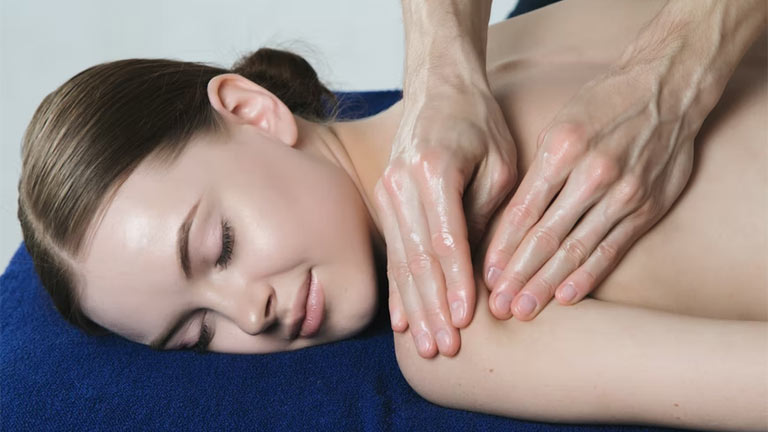
Do you have trouble sleeping at night? Do you have difficulty falling asleep or waking up frequently during the night? If so, you might be among many people suffering from ADHD-related sleep problems. People struggling with ADHD typically experience shorter periods of sleep, more difficulty falling and remaining asleep, and an increased risk of developing a sleeping disorder.
Children with ADHD commonly have nightmares, especially those who suffer from insomnia. This blog post will answer the following questions: What’s the Connection Between ADHD and Sleep? What’s the Biology Behind the ADHD-Sleep Connection, How ADHD Sleep Problems Interfere With Daily Life, Tips for Getting a Good Night’s Sleep if You Have ADHD, and more.
The Relationship Between ADHD and Sleep
Sleep disorders are more likely to develop in people with ADHD around puberty. These disturbances can include shorter sleep time, difficulty falling or staying asleep, and an increased risk of developing a nightmarish disorder.
Some people who are generally calm during the daytime may have difficulty sleeping at night due to an overactive mind and excess energy. For some, nighttime is an ideal time to focus intensely on a project without distractions. However, this can make it hard to fall asleep and lead to insomnia. Over time, as people start feeling stressed about going to bed, their sleep-wake schedule becomes even more disrupted.
People with ADHD often suffer from sleep problems due to their condition. Depending on the type of ADHD, you may have difficulty falling asleep or maintaining sleep. Those with predominantly inattentive symptoms typically have a later bedtime. At the same time, those who are primarily hyperactive-impulsive tend to suffer from insomnia. Those with both symptoms experience poor sleep quality and usually go to bed late.
Many ADHD symptoms, such as forgetfulness and difficulty concentrating, are also symptomatic of sleep deprivation. In fact, 8 out of 10 children who have ADHD also have sleep problems. Often it is difficult to determine whether these issues are brought on by ADHD or lack of sleep, which may lead to misdiagnoses or allow sleep disorders to go undetected altogether.
To prevent this vid and potential complications, experts recommend screening patients for sleep before prescribing medication for their suspected ADD/ADHD disorder(s).
Why Does ADHD Cause Sleep Problems?
Some scientists say that ADHD sleep disorders are caused by a person’s inability to stay aroused and alert and have regulated circuits in the brain. Some believe this can be linked back to a person’s circadian rhythm being delayed, and thus melatonin production starts later. Although some symptoms of sleep disorders are similar to those of ADHD, researchers haven’t found any consistent sleep abnormalities in people with ADHD.
People with ADHD often find it difficult to sleep. While stimulant medications can help some people, they also cause their own share of sleep problems. Other factors contributing to difficulty sleeping include co-existing disorders such as anxiety or depression, poor sleep hygiene, and substance abuse.
A majority of people living with ADHD find it tough to fall asleep since they can’t “turn off their thoughts.” Several people describe themselves as “night owls” who become more energetic when the sun goes down. Others report feeling tired throughout the day; however, as soon as they lay down to sleep, their mind starts racing with thoughts that quickly jump from one worry to another.
Many adults with ADHD are often misdiagnosed with a mood disorder because they describe their thoughts as “racing.” In reality, this is simply the mental restlessness that comes with ADHD. Before puberty, 10-15% of children with ADHD also have difficulty falling asleep–twice the rate found in kids without ADHD.
The number of people with ADHD who have difficulty falling asleep increases significantly as they age–by age 12 1/2, 50 percent of children with ADHD report having this issue almost every night. About 70 percent of all adults with ADHD say it takes them more than one hour to fall asleep at night.
Tips to Help Those with ADHD and Sleep Trouble Get a Good Night’s Rest
If you have difficulty sleeping and also suffer from ADHD, consult your doctor. They may need to adjust your medication or run some tests to get to the root of the issue.
Often, other underlying causes can be ruled out quickly enough. When that’s the case, your ADHD symptoms are likely causing unrest at night. To combat this, adopt some healthy habits and routines (listed below) into your nightly routine. By doing this, you should be able to sleep better at night:
- Use a weighted Blanket to Calm down during sleep
- To ensure a good night’s sleep, avoid napping 4 hours before your regular bedtime
- It is advised that you do not consume caffeine 4 hours before sleep
- Your bed should be a place for rest and intimacy, Don’t eat, drink or watch TV on it
- If you are taking stimulant medication, always take it as early in the day as possible
- Having a bedtime routine can help you relax and get better sleep.
- Maintaining a regular sleep schedule helps keep your circadian rhythm in check
- Find a bed in a dark and quiet room to get comfortable.
- Don’t look at screens (such as TVs and smartphones) in the evening.
Treatment Options for ADHD-Related Sleep Problems
Stimulant medications
Medications that act as stimulants, such as amphetamines (for example, Adderall) and methylphenidate (such as Ritalin or Concerta), are sometimes prescribed to treat people of any age who have been diagnosed with attention-deficit hyperactivity disorder (ADHD).
Cognitive Behavioral Therapy
CBT has been clinically proven to alleviate symptoms of mental health issues such as anxiety disorders, substance abuse, marital problems, eating disorders, and severe mental illness. Multiple studies show that CBT significantly improves patients’ functioning and quality of life. In some cases, CBT is as effective as other psychological therapy or psychiatric medication forms.
Melatonin supplements
This peptide, which the brain releases in response to sunset, aids in setting the circadian clock. You can buy Melatonin without a prescription. However, the available dosages are mostly too large; nearly all research on Melatonin’s effects uses doses lower than 1 mg. (The 3- and 6-mg options on store shelves gain you nothing.) Try taking it for several nights before deciding whether it works for you.
If you have ADHD, mornings might be challenging for you. To make waking up easier, try using light therapy or plan to do something calming but enjoyable as soon as you get up, such as exercise or making yourself a delicious healthy breakfast.
The Children and Adults with ADHD organization do recommend a rewards-based system to combat sleep problems in young children. They note that frequently checking on your child and offering reassurance may help reduce bedtime stress levels. For people with ADHD, talking to a trusted friend, writing in a worry journal, or using relaxation methods such as guided imagery can help reduce stress at night.




